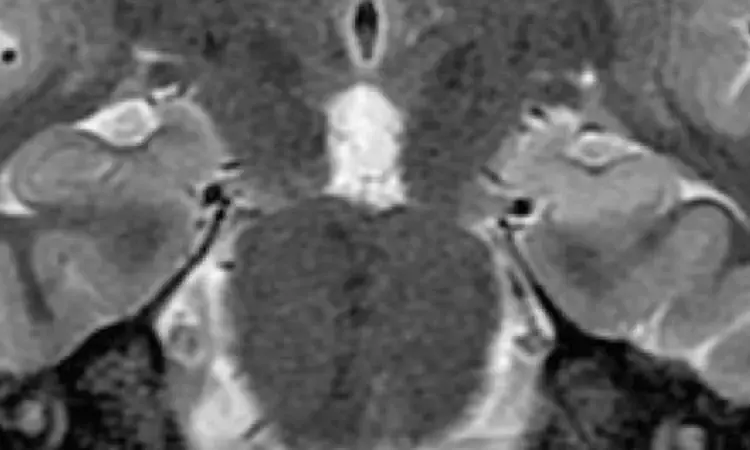- Home
- Medical news & Guidelines
- Anesthesiology
- Cardiology and CTVS
- Critical Care
- Dentistry
- Dermatology
- Diabetes and Endocrinology
- ENT
- Gastroenterology
- Medicine
- Nephrology
- Neurology
- Obstretics-Gynaecology
- Oncology
- Ophthalmology
- Orthopaedics
- Pediatrics-Neonatology
- Psychiatry
- Pulmonology
- Radiology
- Surgery
- Urology
- Laboratory Medicine
- Diet
- Nursing
- Paramedical
- Physiotherapy
- Health news
- Fact Check
- Bone Health Fact Check
- Brain Health Fact Check
- Cancer Related Fact Check
- Child Care Fact Check
- Dental and oral health fact check
- Diabetes and metabolic health fact check
- Diet and Nutrition Fact Check
- Eye and ENT Care Fact Check
- Fitness fact check
- Gut health fact check
- Heart health fact check
- Kidney health fact check
- Medical education fact check
- Men's health fact check
- Respiratory fact check
- Skin and hair care fact check
- Vaccine and Immunization fact check
- Women's health fact check
- AYUSH
- State News
- Andaman and Nicobar Islands
- Andhra Pradesh
- Arunachal Pradesh
- Assam
- Bihar
- Chandigarh
- Chattisgarh
- Dadra and Nagar Haveli
- Daman and Diu
- Delhi
- Goa
- Gujarat
- Haryana
- Himachal Pradesh
- Jammu & Kashmir
- Jharkhand
- Karnataka
- Kerala
- Ladakh
- Lakshadweep
- Madhya Pradesh
- Maharashtra
- Manipur
- Meghalaya
- Mizoram
- Nagaland
- Odisha
- Puducherry
- Punjab
- Rajasthan
- Sikkim
- Tamil Nadu
- Telangana
- Tripura
- Uttar Pradesh
- Uttrakhand
- West Bengal
- Medical Education
- Industry
PET/MRI helpful in difficult cases of epilepsy: Study

France: Hybrid PET/MR can help in identifying brain lesions causing seizures in patients with drug-resistant epilepsy in cases of failure of standard approaches, reveals a recent study. The findings of the study, published in the journal Epilepsy Research, offer hope for patients for whom surgery is often the only treatment option as it allows to optimize the presurgical workup and increases the proportion of successful surgery even in the more complex cases.
Previous studies have shown hybrid PET/MR to be a promising tool in focal drug-resistant epilepsy, however, the additional value for the detection of epileptogenic lesions and surgical decision-making remains to be established.
For the study, Francine Chassoux, GHU Paris-Sainte-Anne, Paris, France, and colleagues retrospectively compared 18F-FDG PET/MR images with those obtained by a previous 18F-FDG PET co-registered with MRI (PET+MR) in 25 consecutive patients (16 females, 13-60 years) investigated for focal drug-resistant epilepsy.
Visual analysis was performed by two readers blinded from imaging modalities, asked to assess the technical characteristics (co-registration, quality of images), the confidence in results, the location of PET abnormalities and the presence of a structural lesion on MRI. Clinical impact on surgical strategy and outcome was assessed independently.
The study revealed the following findings:
- The location of epileptic focus was temporal in 9 patients and extra-temporal in 16 others. MRI was initially considered negative in 21 patients. PET stand-alone demonstrated metabolic abnormalities in 19 cases (76%), and the co-registration with MRI allowed the detection of 4 additional structural lesions.
- Compared to PET+MR, the PET/MR sensitivity was increased by 13% and new structural lesions (mainly focal cortical dysplasias) were detected in 6 patients (24%).
- Change of surgical decision-making was substantial for 10 patients (40%), consisting in avoiding invasive monitoring in 6 patients and modifying the planning in 4 others.
- Seizure-free outcome (follow-up>I year) was obtained in 12/14 patients who underwent a cortical resection.
"Hybrid PET/MR may improve the detection of epileptogenic lesions, allowing to optimize the presurgical work-up and to increase the proportion of successful surgery even in the more complex cases," wrote the study authors.
Reference:
Anthime Flaus, Charles Mellerio, Sebastian Rodrigo, Vincent Brulon, Vincent Lebon, Francine Chassoux. 18F-FDG PET/MR IN FOCAL EPILEPSY: A NEW STEP FOR IMPROVING THE DETECTION OF EPILEPTOGENIC LESIONS. Epilepsy Research, 2021, 106819, ISSN 0920-1211, https://doi.org/10.1016/j.eplepsyres.2021.106819.
Dr Kamal Kant Kohli-MBBS, DTCD- a chest specialist with more than 30 years of practice and a flair for writing clinical articles, Dr Kamal Kant Kohli joined Medical Dialogues as a Chief Editor of Medical News. Besides writing articles, as an editor, he proofreads and verifies all the medical content published on Medical Dialogues including those coming from journals, studies,medical conferences,guidelines etc. Email: drkohli@medicaldialogues.in. Contact no. 011-43720751


